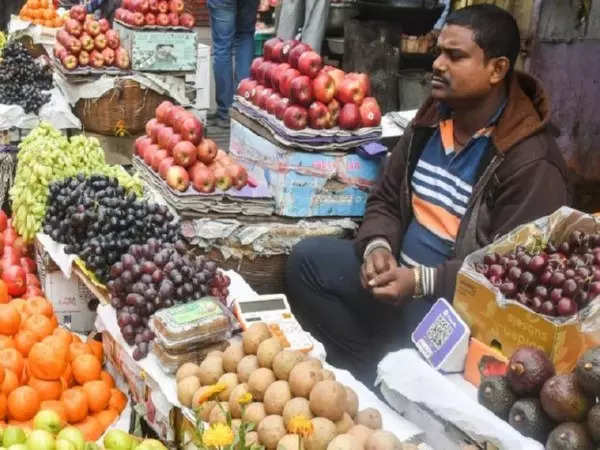
NEW DELHI: The Department of Commerce through Agricultural and Processed Food Products Export Development Authority (APEDA) provides financial assistance to its member exporters of APEDA from across the country, for export promotion of its Scheduled products, including for fruits and vegetables, under Agriculture and Processed Foods Export Promotion Scheme of APEDA for the 15th Finance Commission Cycle (2021-22 to 2025-26).
The schemes launched by APEDA in following three broad areas:
Scheme for infrastructure Development – Financial assistance for setting up of packhouse facilities with packing/ grading lines, pre-cooling unit with cold storage and refrigerated transportation, etc, cable system for handling of crops like banana, pre-shipment treatment facilities such as irradiation, vapor heat treatment, hot water dip treatment and common infrastructure facilities, reefer vans and missing gap in the existing infrastructure of individual exporters.
Scheme for Quality Development – Financial assistance for purchase of laboratory testing equipment, installation of quality management system, handheld devices for capturing farm level coordinates for traceability and testing of water, soil, residues and pesticides etc.
Scheme for Market Promotion – The assistance covers participation of exporters in international trade fairs, organizing buyer seller meets and developing packaging standards for new products and upgrading the existing packaging standards.
The details of financial assistance guidelines are available at APEDA Website www.apeda.gov.in under the “Scheme” tab.
As a result of these initiatives, there has been a growth of 47.3%, in the volume of exports of fruits and vegetables between the period 2019-20 to 2023-24.
- Growth in terms of volume in the last five years 47.30%
- Growth in terms of value in the last five years 41.50%
The government maintains the record of total exports of fruits and vegetables from India. The export figures of states are compiled on the basis of the state-of-origin code reported by the exporters in the shipping bills. Thus, the state-wise data of exports of fruits and vegetables is not available as the same is not validated by DGCI&S. However, the major states producing fruits and vegetables are Uttar Pradesh, Madhya Pradesh, West Bengal, Maharashtra, Andhra Pradesh, Gujarat, Bihar, Tamil Nadu, Odisha, Karnataka.In FY 2023-24, India’s exports of fresh fruits and vegetables reached 123 countries. In the last 3 years, Indian fresh produce entered 17 new markets, some of which are Brazil, Georgia, Uganda, Papua New Guinea, Czech Republic, Uganda, Ghana, etc. This has been achieved through a host of measures such as participation in international trade fairs, actively pursuing market access negotiations, organizing buyer seller meets, etc, the Ministry of Commerce & Industry said in a statement on Tuesday.
Department of Commerce is working in close coordination with the MoA&FW in prioritizing agriculture products for market access negotiations to reach new markets. As a result, India has achieved new market access in following commodities in the last three years:
- Indian Potatoes and Onions in Serbia
- Baby corn and fresh banana in Canada
- Pomegranate arils in Australia, USA, Serbia, and New Zealand
- Whole pomegranates in Australia via Irradiation treatment
The barriers in accessing new markets differ from product to product and are dynamic in nature. Some of the major barriers in accessing new markets for fruits and vegetables are:
- Long geographic distance from India raising the costs of logistics.
- Delay in grant of market access by importing countries for certain products.
- Stringent Phyto-sanitary requirements imposed by some importing countries.
- Delay in registration of enterprises in certain countries.
To address the above issues, various steps are being taken by the Department of Commerce:
For expand market access to our products, MoA&FW and APEDA have identified key products and key countries for intensifying market access negotiations.
Development of sea protocols for horticulture products to reduce logistic expenses and to enable larger volume of exports.
Regular follow up with the counterpart authorities of importing countries with support of our Missions abroad for registration of facilities and market access negotiations.
For meeting stringent phyto-sanitary requirements, setting up of traceability system and a system of farmer and facility registration, the ministry added.


